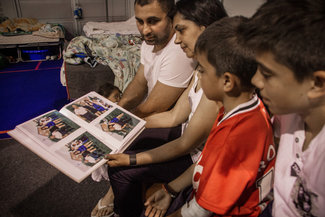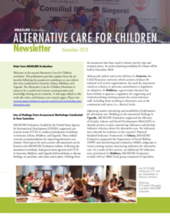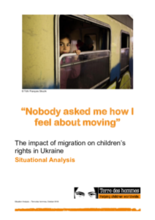

Displaying 621 - 630 of 1071
The alternative care for children newsletter provides updates following assessment workshops on care reform that were conducted in Armenia, Ghana, Moldova, and Uganda.
The present research looks at the main migration patterns and trends of internal and outward migration from Ukraine trying to assess the push and pull factors for regular and irregular migration which affect children.
According to some estimates, a third of the adult Moldovan population is working abroad, often ‘leaving behind’ children in the care of relatives, neighbours or in orphanages. This paper from the Journal of European Studies investigates how such high migration rates affect Moldovan family life and personal definitions of identity and success.
This country care review includes the care-related Concluding Observations adopted by the Committee on the Rights of the Child and the Committee on the Rights of Persons with Disabilities.
Russian supermodel Natalia Vodianova has been campaigning for the prevention of institutionalization of children with disabilities and speaks about her efforts in this interview by Thomas Reuters Foundation.
This study examined disruptions in caregiving, as well as the association of these disruptions, with cognitive, behavioral, and social outcomes at age 12 in a sample of 136 Romanian children who were abandoned to institutions as infants and who experienced a range of subsequent types of care.
This article explores the issue of the major reform of the child welfare sector that has been carried out in Russia in recent years.
This article explores the issue of the major reform of the child welfare sector that has been carried out in Russia in recent years.
This study explored whether patterns of catch-up growth affect metabolic and cardiovascular outcomes in previously institutionalized adolescents in Romania.
It has long been recognized that early adversity represents a strong risk factor for the development of later psychopathology.



